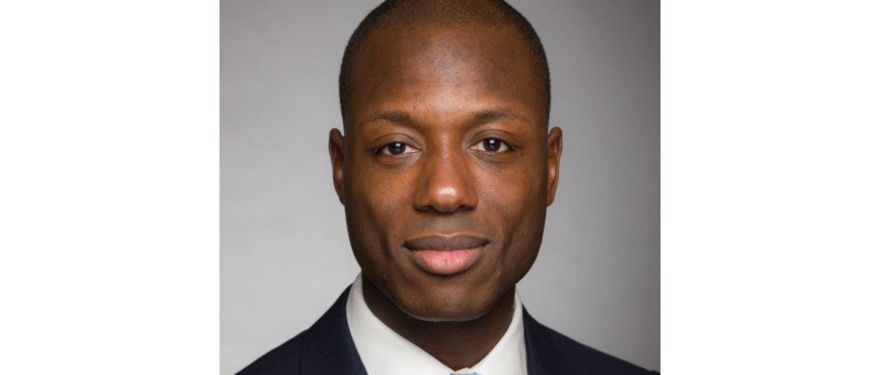Birmingham, Alabama, native Kel Jackson describes himself as “the kid who would find things around the house to tinker and build with.” When he was 16, the young entrepreneur founded RCM RC Products—a business that designed, sourced, manufactured, and sold performance after-market parts for hobby-class radio-controlled cars.
Jackson went on to attend Auburn University for his undergraduate education, earning a Bachelor of Mechanical Engineering. After graduation, Jackson worked as a jet engine engineer and then operations supervisor at Pratt & Whitney of United Technologies Corp. in Columbus, Georgia.
“I love the aviation industry,” says Jackson. “It inspires a childlike sense of wonder. As a kid, I used to look up at the airplanes zooming across the sky, and wonder, ‘How is that possible?’”
After almost seven years at Pratt & Whitney, Jackson decided to pursue higher education. “The short answer is that I wanted more,” he says. “I was in a field where there wasn’t a lot of advancement in the near term. I felt that I had leadership potential but didn’t have a clear path with how to develop it.”
“HBS was always the dream,” he says. “My thesis was about doubling down on being the operations guy who knows leadership. I’m a mechanical engineer so I have this background everyone doesn’t have. I would focus on the areas where my background naturally created strengths.”
Enhancing an existing skillset
Now in his second year at HBS, Jackson is a Student Association Representative, public speaking instructor, and tutor. When applying for an internship, his wide-ranging interests made it difficult to pinpoint just one industry. Jackson considered private equity but ultimately landed an internship in the same sector he’d been in prior—this time, as a Business Strategy Intern at Aurora Flight Sciences in Cambridge, Massachusetts.
“I was looking for an opportunity where I could use some of the skills I’d learned so far at HBS in terms of [fundamental] business acumen and apply them in an environment that also utilized the existing skillset I have—and knowledge of [aviation] acronyms.” says Jackson. “For me, it was a really great combination. I ended up getting a lot of autonomy. I didn’t want a role that would box me in. It gave me an opportunity to jump in the ocean and use the skills I had and figure out the problems I was tasked to support.”
After a successful internship, Aurora Flight Sciences offered Jackson a full-time position in a newly created role, as Director, Program Operations & Strategy—and he accepted. When asked how he knew that Aurora would be his post-grad career launch point, he says: “I would say number one it matters. I like to tell people that’s what gets me out of bed—is feeling like I matter. People’s lives rely on what we do at Aurora.”
In his new role, Jackson is most excited about implementing the strategy and finance knowledge he’s gained at HBS, because he sees opportunities to bridge worlds through a finance lens.
“I hesitate to say [strategy and finance] in that order because I really see the two as interlinked,” he explains. “Strategy because [I enjoy] thinking through the layers of decisions that we have to make and the various considerations in terms of what our competitors are going to do, how we’re going to respond, how they’re going to respond to our response. Finance because, when executed correctly, it drives value creation, enables your strategy, and is synergistic to the entire energy of the firm.”
When it comes to goal setting and future planning, Jackson hopes to simply stay grounded and keep his eye on what matters. He says he hasn’t ruled out a future run for office, yet he’s not trying to force history—if he can make a difference in that way, he certainly will.
“I’m not measuring success by my title,” he says. “What I hope broadly is that I’ve developed an expertise. That I’ve demonstrably added value. That I have the capacity to influence the firm in a positive direction. And that I’ve been rewarded for it.”







